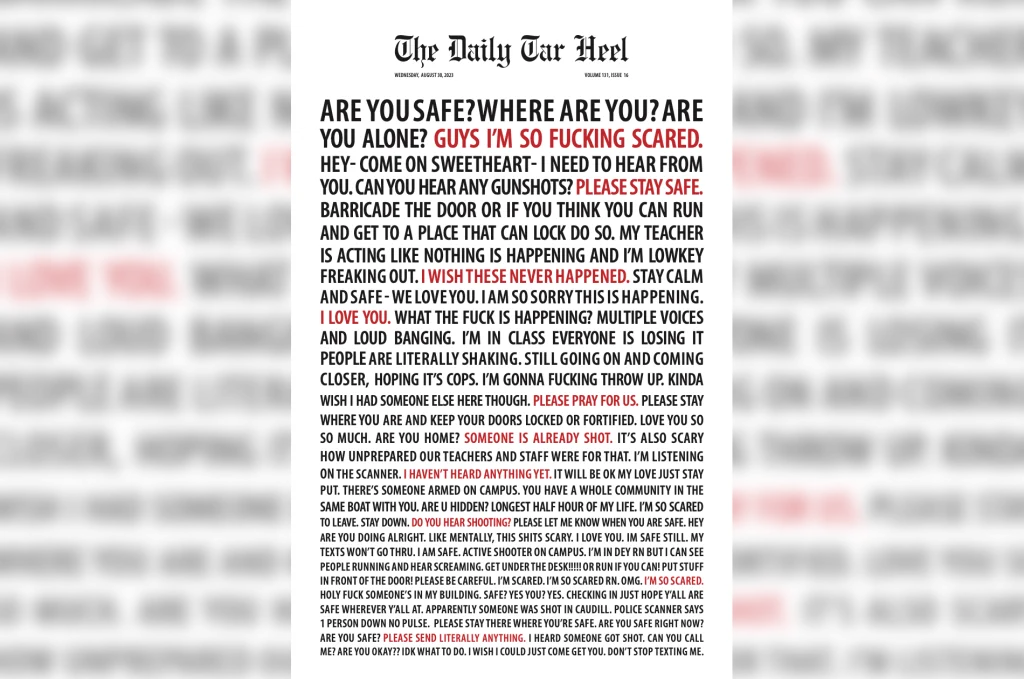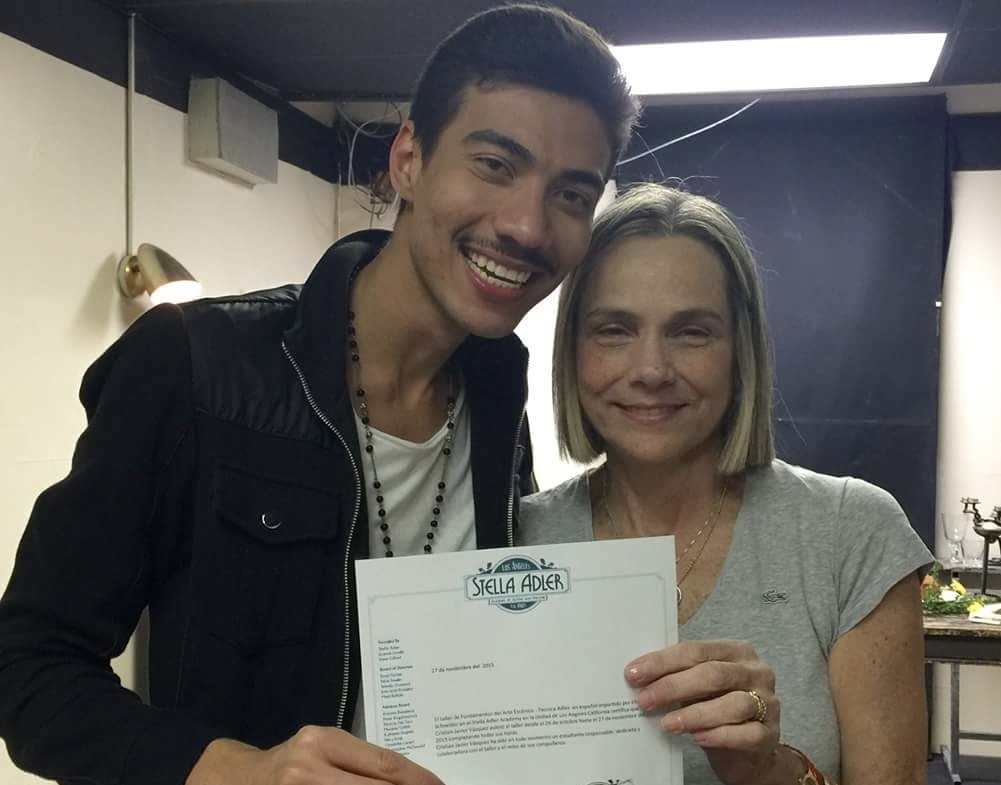(HOUSTON) — Echoing across UNC Chapel Hill’s campus on August 28, 2023, were not typical school bells. Sirens blared, warning of an impending disaster. Real-time emergency notifications erupted on smartphones, alerting of an “armed and dangerous person” in the campus vicinity at 1:04 pm that Monday afternoon.
What the UNC community had yet to discover, a realization that would take at least the next 190 minutes while they were under lockdown, was that Professor Zijie Yan, an associate professor in the Department of Applied Physical Sciences, had been fatally shot by one of the graduate students he was advising.
The shooting would thrust UNC Chapel Hill into the national spotlight. The Daily Tar Heel, UNC’s legacy student newspaper known for objective reporting, faced an unprecedented challenge: How do you maintain journalistic neutrality when the tragedy strikes so close to home?
As another American student body became a headline in the ever-escalating number of mass shootings faced by this country, a group of UNC students were forced into a moral dilemma. As journalists responsible for publishing the campus paper, how were they to cover the tragedy, something they were inescapably a part of, while adhering to the journalistic standard of objectivity?
The Daily Tar Heel is UNC’s weekly student newspaper, founded in 1893 and printed every Wednesday. It’s important to note that the paper is operated by a board of directors and functions as an incorporated nonprofit organization, independently funded by advertising dollars and without accepting student payments.
Equally crucial is the fact that the paper is produced by students and operates under the predominant direction of the student board of directors. Could the aforementioned crew be trusted to tell the UNC student body’s tragic story objectively when they were, in essence, the story?
Maybe. But they chose not to, and in doing so became the de facto voice of every student nationwide who has practiced ‘active shooter drills’ in their school hallways since 1999. Editor-in-Chief Emmy Martin made the call to use the cover of the August 30, 2023, edition of The Daily Tar Heel to make an impassioned statement. It was arguably biased. It embraced every shade of gray—and, in this instance, red—in an industry that ascribes to black-and-white, factual reporting.
Filling the front page, Martin’s team printed 383 words pulled directly from text messages of UNC students on the day of the shooting. These messages contained profanities, cries for help, and alarming real-time observations from lockdown.
On August 28, 2023, the UNC student body endured the all-too-familiar horror of facing a mass shooter. On August 30, 2023, the journalists at The Daily Tar Heel took a stand and presented stories from that day in a way that challenged reporting norms and made a statement about their individual ethics as reporters. As a fellow journalist, I wholeheartedly support their decision. Our duty is to tell the truth; our duty is to give a voice to the voiceless. These principles should overshadow the part of journalism that calls for complete objectivity and detachment from the story. We all become the story at some point, and we shouldn’t simply shout but scream like hell about what we are witnessing, even when that’s the case.


